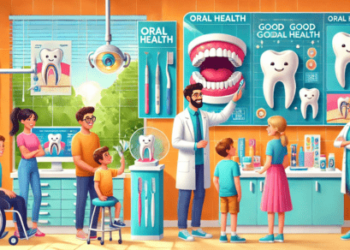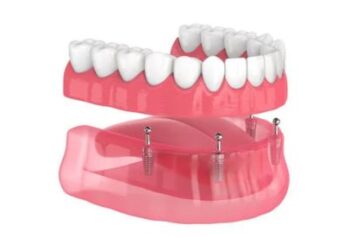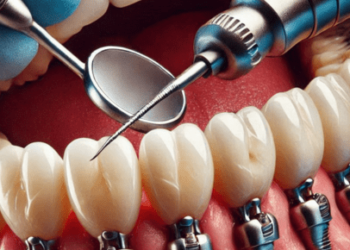When it comes to managing diabetes, you might be focused on monitoring blood sugar levels, maintaining a balanced diet, and staying active. However, one crucial aspect that often goes unnoticed is the impact of diabetes on your gum health. Research has shown a strong link between diabetes and periodontal disease, which is an infection of the gums and bones that hold your teeth in place. This connection is not only significant but also bidirectional, meaning that while diabetes can lead to gum disease, severe gum disease can also affect blood sugar control, worsening diabetes.
As someone managing diabetes, understanding this connection is vital for your overall health and well-being. By being aware of the risks and taking proactive steps to maintain your oral health, you can help prevent complications and improve your quality of life. Let’s delve into how diabetes and gum health are intertwined and what you need to know to protect yourself.
The Impact of Diabetes on Gum Health
Diabetes can have a profound effect on your oral health, particularly your gums. High blood sugar levels can lead to increased glucose in your saliva, creating an ideal environment for harmful bacteria to thrive. This can result in plaque buildup, which, if not removed, can harden into tartar and lead to gum disease. Furthermore, diabetes can reduce your body’s ability to fight off infections, making your gums more susceptible to inflammation and disease.
Periodontal disease is a common complication of diabetes, and it can range from mild gingivitis, which is inflammation of the gums, to more severe periodontitis, which can lead to tooth loss. Studies have shown that individuals with diabetes are at a higher risk of developing gum disease compared to those without diabetes. This is why regular dental check-ups and maintaining good oral hygiene are crucial for those with diabetes.
How Gum Disease Affects Diabetes Management
The relationship between diabetes and gum health is not a one-way street. Just as diabetes can contribute to gum disease, severe gum disease can also make it more challenging to control blood sugar levels. Inflammation in the gums can increase the body’s overall inflammatory response, which can lead to increased insulin resistance and higher blood sugar levels. This creates a vicious cycle where uncontrolled diabetes exacerbates gum disease, and severe gum disease makes diabetes harder to manage.
For individuals with diabetes, managing gum disease is an essential part of their overall diabetes care plan. By reducing inflammation in the gums, you can improve your body’s ability to regulate blood sugar levels, making diabetes management more effective. This highlights the importance of integrating oral health care into your diabetes management routine.
Recognizing the Signs of Gum Disease
Being aware of the signs and symptoms of gum disease is crucial for early detection and treatment. Some common indicators include:
- Red, swollen, or tender gums
- Bleeding gums during brushing or flossing
- Persistent bad breath
- Receding gums or longer-appearing teeth
- Loose or shifting teeth
- Changes in your bite or the fit of dentures
If you notice any of these symptoms, it’s important to consult with a dental professional promptly. Early intervention can help prevent the progression of gum disease and its impact on your diabetes management.
Maintaining Gum Health with Diabetes
Proactively managing your gum health is essential when you have diabetes. Regular dental visits are crucial, as they allow your dentist to monitor your oral health and catch any signs of gum disease early. Professional cleanings can remove plaque and tartar that regular brushing and flossing might miss, further reducing your risk of developing periodontal disease.
In addition to professional care, adopting a robust dental hygiene routine at home can significantly impact your gum health. Brush your teeth at least twice a day with fluoride toothpaste and use a soft-bristled toothbrush to prevent gum irritation. Floss daily to remove food particles and plaque from between your teeth, where your toothbrush can’t reach. Consider using an antiseptic mouthwash to help reduce bacteria in your mouth.
The Role of Diet and Lifestyle
Managing your diet and lifestyle is another critical component of maintaining gum health with diabetes. A balanced diet rich in vitamins and minerals supports both your overall health and your oral health. Foods high in vitamin C, such as citrus fruits and leafy greens, can help strengthen your gums and improve their resilience against infection. Meanwhile, calcium-rich foods like dairy products and almonds support strong teeth and bones.
Smoking cessation is also vital, as smoking can exacerbate gum disease and hinder your body’s ability to heal. If you smoke, consider seeking support to quit, as this can improve both your gum health and your diabetes management.
Collaborating with Healthcare Professionals
Working closely with your healthcare team, including your dentist, endocrinologist, and primary care physician, can help you manage both your diabetes and gum health effectively. Keep your healthcare providers informed about any changes in your oral health or diabetes management plan. They can offer guidance and adjust your treatment as needed to ensure optimal health outcomes.
For instance, if you’re experiencing difficulty controlling your blood sugar levels, your healthcare team may recommend adjustments to your medication or lifestyle habits. Similarly, if your dentist notices signs of gum disease, they can work with your other healthcare providers to address the issue promptly.
Exploring Advanced Treatments for Gum Disease
If you develop gum disease, there are several advanced treatment options available that can help manage the condition and protect your oral health. Scaling and root planing, a deep cleaning procedure, can remove plaque and tartar from below the gumline and smooth the roots of your teeth to prevent bacteria from accumulating. In more severe cases, surgical interventions such as flap surgery or bone grafts may be necessary to restore gum and bone health.
Innovative treatments, such as laser therapy, are also becoming more widely available. Laser therapy can precisely target and remove diseased tissue while minimizing damage to healthy tissue, leading to faster healing times and less discomfort.
Emphasizing the Importance of Regular Monitoring
Regular monitoring of both your diabetes and gum health is essential for preventing complications and maintaining overall well-being. Keep track of your blood sugar levels and any changes in your oral health, and communicate these to your healthcare providers. By staying vigilant and proactive, you can effectively manage your diabetes and reduce the risk of gum disease.
Ultimately, understanding the link between diabetes and gum health empowers you to take control of your health. By prioritizing your oral care and collaborating with your healthcare team, you can enhance your quality of life and reduce the risk of complications associated with diabetes and gum disease.
Integrating Oral Health into Your Diabetes Management Plan
Successfully managing diabetes requires a comprehensive approach that includes vigilant oral health care. By integrating regular dental visits and meticulous oral hygiene into your diabetes management plan, you can significantly reduce the risk of complications. This holistic approach ensures that you are not only managing your blood sugar levels but also maintaining a healthy mouth, which plays a crucial role in your overall health.
Your dental professional can work with you to create a personalized oral health plan that aligns with your diabetes management goals. This may include scheduling more frequent dental check-ups, receiving professional cleanings, and implementing specific home care practices tailored to your needs. By prioritizing your oral health, you can make a positive impact on your diabetes management and overall well-being.
Educating Yourself and Others
Awareness and education are powerful tools in managing both diabetes and gum health. By staying informed about the latest research and recommendations, you can make informed decisions about your health care. Sharing this knowledge with family members, caregivers, and peers can also help raise awareness about the importance of oral health in diabetes management.
Consider attending workshops, seminars, or support groups that focus on diabetes and oral health. These resources can provide valuable insights, practical tips, and support from others who understand the challenges you face. By engaging with educational opportunities, you can empower yourself to take control of your health and inspire others to do the same.
Leveraging Technology for Better Health
Technology can be a valuable ally in managing diabetes and maintaining gum health. From smartphone apps that track blood sugar levels to electric toothbrushes with timers and pressure sensors, technology offers a range of tools to support your health goals. These innovations can help you stay on top of your diabetes management and oral hygiene routine, ensuring that you are taking proactive steps to protect your health.
Explore the various technological solutions available to you and consider incorporating them into your daily routine. By leveraging technology, you can enhance your ability to monitor your health, receive timely reminders, and access educational resources that support your journey toward better health.
Engaging with Yonge Eglinton Periodontics
At Yonge Eglinton Periodontics, we understand the unique challenges faced by individuals managing diabetes and the importance of maintaining optimal gum health. Our team is dedicated to providing personalized care and support to help you achieve your health goals. With our expertise in periodontal care and a commitment to patient education, we are here to assist you in navigating the complexities of diabetes and oral health.
If you have any questions or would like to learn more about how we can support your oral health needs, please reach out to us at info@yongeperio.com. We are here to provide the guidance and care you need to maintain a healthy smile and improve your overall well-being.











